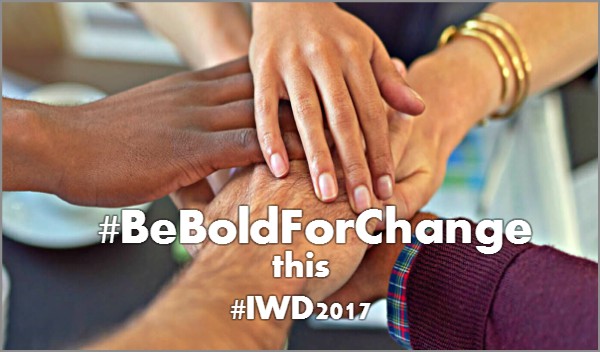 That’s the theme of this year’s International Women’s Day(1). It invites us to help forge a better working world for all of us no matter our gender.
That’s the theme of this year’s International Women’s Day(1). It invites us to help forge a better working world for all of us no matter our gender.
How do we respond to such an invitation? Are we ready for ‘bold’? It is not easy to speak up, to make unpopular choices or to buck against the status quo. Many of us want to be a leader within our families, our communities and networks and work to accelerate equality which requires courage alongside pragmatic action.
And such actions are far more likely to happen if one has a coach.
It seems we are already making considerable changes in our lives and the lives of those we coach. Women are more likely to consider a coach or choose a career as a coach or integrate coaching skills into their current profession, according to research by the International Coaching Federation (ICF).
Other coaching statistics show that over two-thirds of the people who turn to a life coach to help them improve their lives are women. In a similar ICF study conducted in 2016, 67 percent of global coach practitioners are women, with the highest concentrations in North America, Eastern Europe, and Oceania. More to the point, 66 percent of survey respondents are women managers or leaders.
That’s good news.
If women are coaching change agents, it stands to reason we are significantly impacting change in the direction of gender parity. Not by making it part of our client’s agenda but by recognizing our influence and seeing ourselves as a part of a bigger collaboration working to right the inequities.
While coaches, managers, and other leaders women have the influence we are still more likely than men to be unemployed or to be contributing family workers, which usually implies no access to monetary income. In Oceania, sub-Saharan Africa and Southern Asia, between 30 and 55 percent of employed women are contributing family workers, about 20 percentage points higher than men in the same regions. (2)
Women are also more likely than men to be employed part-time. This can help them to better balance work, household and child-rearing responsibilities, but part-time jobs are often associated with lower hourly wages, less job security and less training and promotion opportunities than full-time employment.
Women are also significantly underrepresented in decision-making positions such as legislators, senior officials and managers and are over-represented as domestic workers, positions that are characterized by low pay, long hours and lack of social protection.
Over the past 20 years, an increasing number of countries have adopted legislation providing maternity and paternity benefits, enabling workers to meet their responsibilities outside work. Over half of all countries currently offer at least 14 weeks of maternity leave and 48 percent of countries have provisions for paternity leave. These measures, however, often exclude workers in specific sectors or categories of employment, such as paid domestic workers, own-account and contributing family workers, casual and temporary workers, and agricultural workers.
So what’s a coach to do? Keep coaching. And become masterful at it. Equality and social change is built on a foundation of connection and understanding. Active listening and powerful questioning are two coaching tools that support these essential communication competencies.
When we listen with our full attention and an open mind, we relate to others through direct experience rather than through filters of partisanship or judgment. It allows us to experience our commonalities and see the inherent value of others. We view our differences in a new context where those very differences create possibilities rather than roadblocks.
Each one of us whether coach or client, manager or at home parent or working mom, by joining forces through purposeful collaboration, we can change the world starting with gender parity to advance and unleash the limitless potential of women and the contributions they offer to economies the world over.
References